Books and volumes
-

Unmooring (n.d.)
Co-edited with Milad Odabaei. Contributors: Aaron Eldridge, Brent Eng, Samera Esmeir, Rajbir Singh Judge, Jean-Michel Landry, Candace Lukasik, Naveed Mansoori, Stefania Pandolfo, Christopher Sheklian.
-

In/capacitations of Tradition (2026)
Co-edited with Milad Odabaei. Special issue of History of the Present: A Journal of Critical History 16, no. 1 (April). Contributors: Niki Kasumi Clements, Basit Kareem Iqbal, Rajbir Singh Judge, Katherine Lemons, Milad Odabaei, Sara Pursley.
-

The Dread Heights: Tribulation and Refuge after the Syrian Revolution (2025)
An ethnography of Islamic theology in the shadow of war.
-
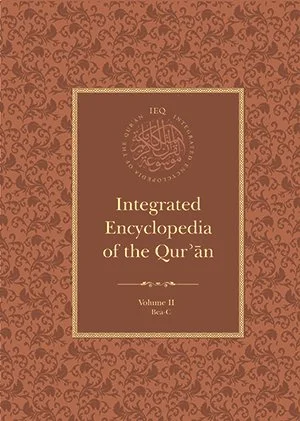
The Integrated Encyclopedia of the Qur'an, vol. 2 (2024)
Assistant editor. Bea-C.
-

The Destruction of Loss (2023)
Co-edited with Rajbir Singh Judge. Special issue of Critical Times: Interventions in Global Critical Theory 6, no. 2: 151-410. Contributors: Gil Anidjar, Amaryah Shaye Armstrong, Christopher Bracken, Sophie Chao, Ali Cherri, Anila Daulatzai & Sahar Ghumkhor, Juan Carlos Medel Toro, Deepti Misri, Emily Ng, Marc Nichanian, Milad Odabaei, Mary Louise Pratt, Kali Rubaii, Abraham Weil, Mareike Winchell, Kee Howe Yong.
-

Ethnographies of Tribulation (2022)
Special issue of Political Theology 23, no. 6: 525-628. Contributors: Hussein Agrama, Tanzeen Doha, Basit Kareem Iqbal, Zunaira Komal, M. Bilal Nasir, Walaa Quisay.
-

The Integrated Encyclopedia of the Qur'an, vol. 1 (2013)
Assistant editor. A-Bea.
Articles and chapters
-
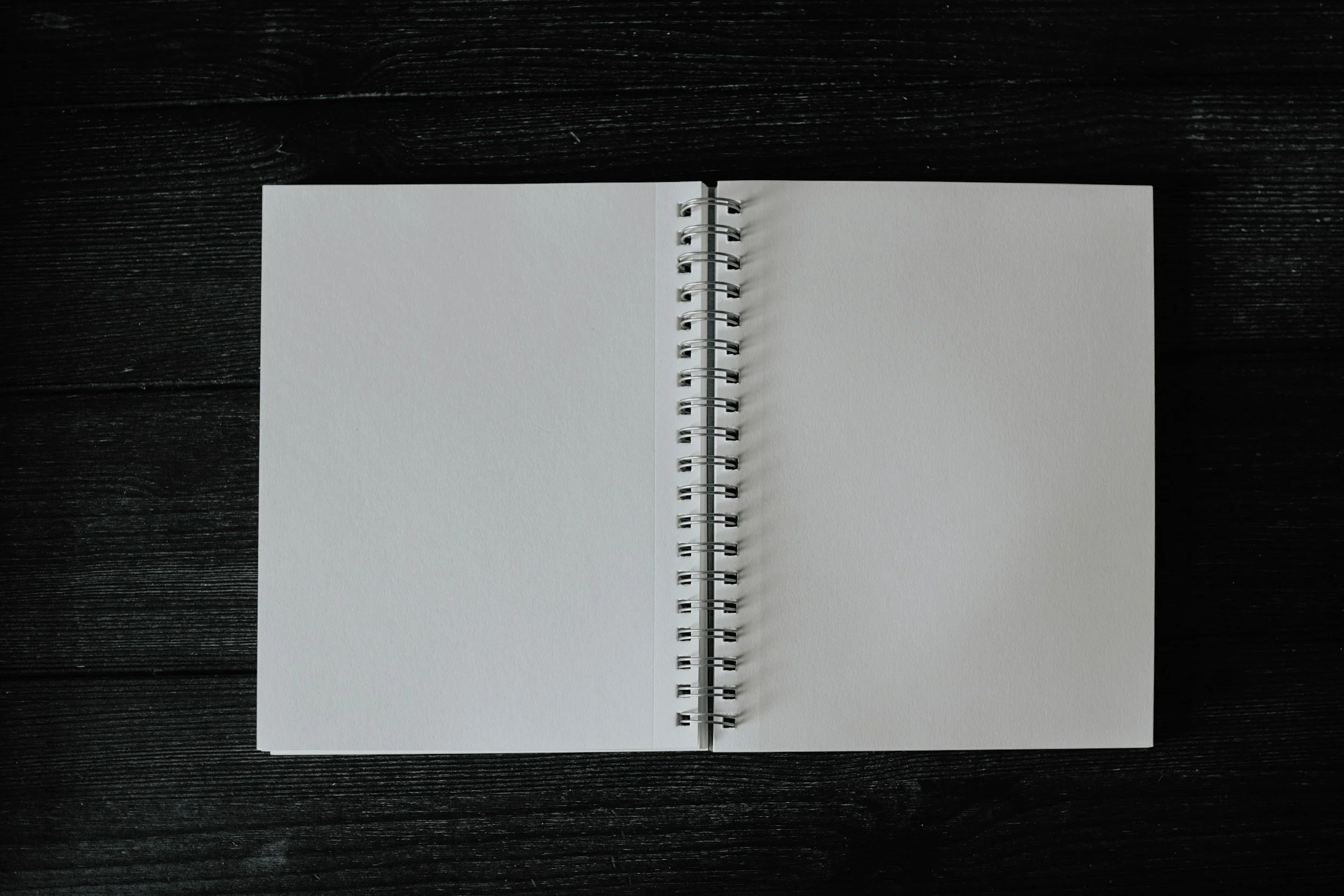
To the Threshold of Capacity: Tribulation and Ambivalence in Zaatari Camp (n.d.)
Freed from the Assad regime’s obsessive control of religion, displaced Syrians in Zaatari Refugee Camp pursue sharia studies. They refuse the lure of resettlement or restoration, developing instead an extensive program of study. These teachers and students relate their pursuit of religious knowledge to the existential question of their own individual and collective capacities. In doing so they underscore the essential opacity of human experience. This lesson, at once anthropological and theological, leads away from conventional affirmations of refugee agency or resilience. This lesson demands admitting the heteronomous conditions of existence. They call this: fate.
-

On the Revelation of Violence (n.d.)
In the final ten days of Ramadan 1446, the Israeli army dropped leaflets over Gaza. A year and a half into the latest front, among the thousands and thousands of Palestinians displaced and destroyed, the land bulldozed, the habitations bombarded—among the multitude of horrors, some broadcast around the world—the Israeli army sent down death notes from the sky. This leaflet illustrates the precise totalization of Israeli sovereignty: its extension beyond the bounds of this world, in fact its targeting of the very possibility of passage beyond. This was not the worst exercise of violence seen in Palestine: the settler mania of Israeli discourse and practice has long slipped between different styles (whether enjoying violence, as in ‘cruelty’, or indifferent to it, as in ‘brutality’). But at stake in the leaflet as theologico-political artefact is the possible relation between the present and its other side: a future that is not of this world, to which the trials of experience might gesture.
-

Elegy for the Nightingale of the Syrian Revolution (n.d.)
This paper attends to one expression of mourning ‘Abd al-Basit Sarout, the young Syrian commander known as the “guardian” and the “nightingale” of the revolution. The commemoration in question is an elegy (ritha’) composed on the day he was martyred by one of my interlocutors in Canada, a poet from the city of Hama, who was a few years older than Sarout and who knew him from the early days of the protests in Homs. In this elegy, fidelity to the revolution is defined by a marked refusal of any horizon outside the space of militant struggle. Such a horizon can only appear within the struggle as a lure and temptation, one which for all its promise forecloses the possibility of commitment. Sarout’s fidelity rather finds its orientation within the space of death, that is, in life confronting its limits and recognizing its intimacy with death. This commitment encompasses failure, defeat, and death. In so doing it serves as one pole of the juxtapositions beloved by the poem: as witness to the world not touched by the possibility of freedom—or lacking the courage to heed it.
-

Unbearable Testimony (n.d.)
Two refrains emerge against scenes of horrific violence: appeals to a common humanity and a humanitarian declaration of universal witness. Both promise to sympathetically unite victims and spectators. The war (ongoing) exposes the absurdity of such claims. This fragmentary essay questions both impulses. Instead it elaborates some aspects of creational existence—memory and forgetting, cruelty and comfort, misery and endurance, the problem of number and the work of mourning, singular and collective, where destruction and salvation collapse—of that human created in loss, says the Quran (103:2).
-

In/capacitations of Tradition: An Introduction (2026)
Co-authored with Milad Odabaei. Scholars have long examined the varied capacities of ethical, political, and theological traditions to engage contemporary predicaments and political crises. This special issue instead problematizes the capacity of tradition, seeking to articulate multiple registers of its incapacity. By shifting our attention from affirming capacity to exploring incapacity, we do not seek to rehearse tired conclusions about the modern interruption of tradition. Rather, we aim to explore both how a tradition’s forms of life and learning are incapacitated and their responses to destruction and discontinuity.
-

The Aching Community (2026)
For secular social science, declarative claims of Muslim unity are not tenable and the discourse of religious community serves ideological functions. Meanwhile, contemporary discourses and practices variously register the ongoing destruction of the Islamic Community (umma): assailed by vicious regimes and civil war, subjected to capital and colonial borders. This article presents two exchanges from my broader fieldwork in and around Syria in order to ethnographically articulate historical forms of loss named by the umma today. In the first of these dialogues, transcribed and excerpted from a debate in Damascus in 2004, two Muslim scholars argued about how to understand the postcolonial fate of Islamic political institutions. Here the umma appears interrupted and abandoned. In the second dialogue, held in 2018 with the director of an Islamic charity serving Syrian refugees in Jordan, the umma appears ruined. In place of a positive history, these forms of loss—interruption, abandonment, and ruin—offer figures for the life of the umma.
-
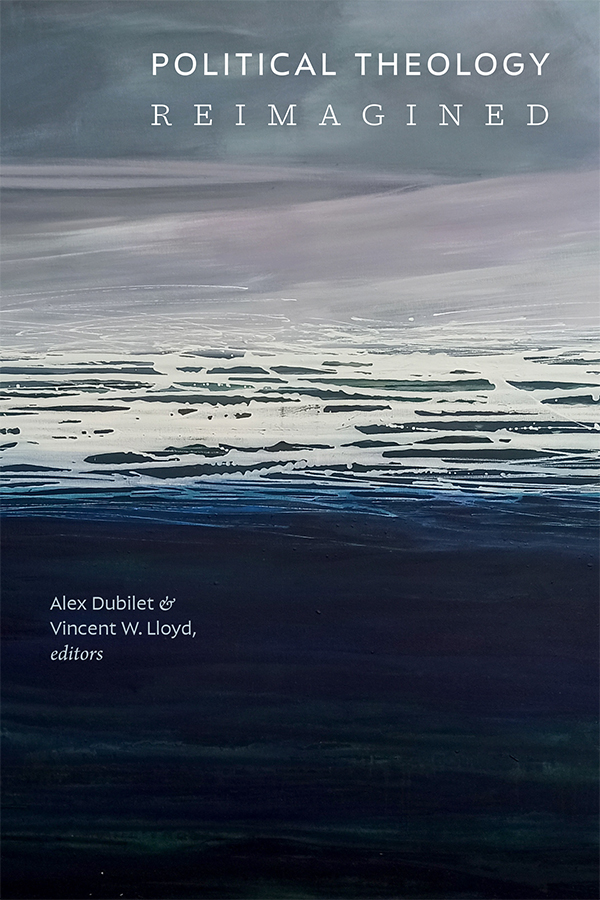
For an Historical Grammar of Concepts: Thinking about Political Theology with Talal Asad (2025)
Co-authored with Milad Odabaei. The term “political theology” is not central to the oeuvre of the anthropologist Talal Asad; in fact, much of his work is dedicated to problematizing conceptual translations across “religion” and “politics”. Meanwhile, much contemporary literature in the growing, interdisciplinary field of political theology cites and engages his wide-ranging work. This chapter presents two divergent examples to illustrate his approach to political theology: both in his analysis of French debates over schoolgirls wearing veils and in his discussion of fear and suspicion after the Egyptian revolution, he notes a structural correspondence only to turn to its differential results. In doing so, he invites us to think about how embodied traditions disclose forms of life under shifting conditions of power.
-

The Destruction of Loss: An Introduction (2023)
Co-authored with Rajbir Singh Judge. This special issue of the journal Critical Times explores global permutations of loss while remaining attentive to the history of destruction. How does one narrate a loss after the destruction of its context, when the border between mourning and melancholia is rendered unstable, or in the absence of a common historical horizon? This special issue maps out asymmetric distributions of loss across varied disciplines and archives (psychoanalysis, ecology, history, anthropology, literature, film, and more) in order to grapple with these difficult questions. The introduction begins by exploring the generalization of loss in Sinan Antoon's 2010 novel The Corpse Washer before presenting the stakes and aims of this collaborative project and relating its sixteen essays.
-

Hold Fast the Rope of God: Space, Authority, and Speech in Muslim Prison Narratives (2023)
Co-authored with Walaa Quisay. Scholarship about Muslims in prison has been overwhelmingly dominated by security studies’ radicalization thesis and by a superficial reading of incarcerated Muslims’ “religious resilience.” Such approaches caricature the force of Islam in prison and indeed in Muslim prison narratives. This essay draws on interviews with survivors of prisons in Egypt, the United Arab Emirates, and Syria in order to develop other terms for analysis. Across our textual and ethnographic engagements, we read for varied permutations of carceral space, formations of religious authority, and an intimate (witnessing) relation between speech and violence. Muslim prison narratives see a broad emphasis on the mutability of these themes, as demonstrated in motifs such as prison dreams and their interpretation. Beyond establishing that Islam offers solace to the imprisoned, we observe how our interviewees draw on a common theological archive; we demonstrate the ethnographic complexity of these religious archetypes; and we develop terms of analysis that are specific without exceptionalizing Muslim prison narratives.
-

A Tropics of Estrangement: Ghurba in Four Scenes (2022)
Co-authored with Aaron Eldridge. This essay traces distinct itineraries of ghurba (estrangement, exile, alienation) across four ethnographic scenes: Orthodox Christian activists in austerity Beirut refuse to abandon the corrupted world; a Syrian Islamic scholar in Jordan insists on the patient work of rehabilitation; Orthodox ascetics in a monastic community outside Tripoli turn to the hidden alienation of the world; and a Muslim calligrapher in Canada relinquishes the guarantee of ethical relation. Taken together, these scenes form a contemporary tableau of alienation in the shared vocabulary of Eastern Christianity and Islam. Drawing on Ibn Khaldun’s Muqaddimah—in its articulations of soul, community, and world, always already shadowed by their destructive undoing—we situate these four articulations along spatio-temporal axes of destruction and production, city and desert, paradise and hellfire: a purgatorial topology which modulates what Agamben calls the contemporary destruction of experience.
-

Reprising Islamic Political Theology: Genre and the Time of Tribulation (2022)
Contemporary Islam has long been presented as the object of modern crises (from colonialism to globalization). But the secular idiom of crisis reproduces the logic of norm and exception, continuity or closure. This essay instead briefly traces the Quranic figure of tribulation in selected Islamic genres (ethics, theology, and historiography) in order to animate another tradition of thinking the difficulty of the present. Because it resists the secular periodization of Islam even while retaining a productive relationship to history, tribulation reprises the rupture conventionally narrated in and of Islamic political theology. More generally, developing “tribulation” as an analytic term may allow for a more adequate conceptualization of the temporal architecture of Islamic forms of life. Finally, foregrounding genre in attending the temporalities of tribulation and tradition allows for methodological resonances between anthropology, psychoanalysis, and poetics.
-
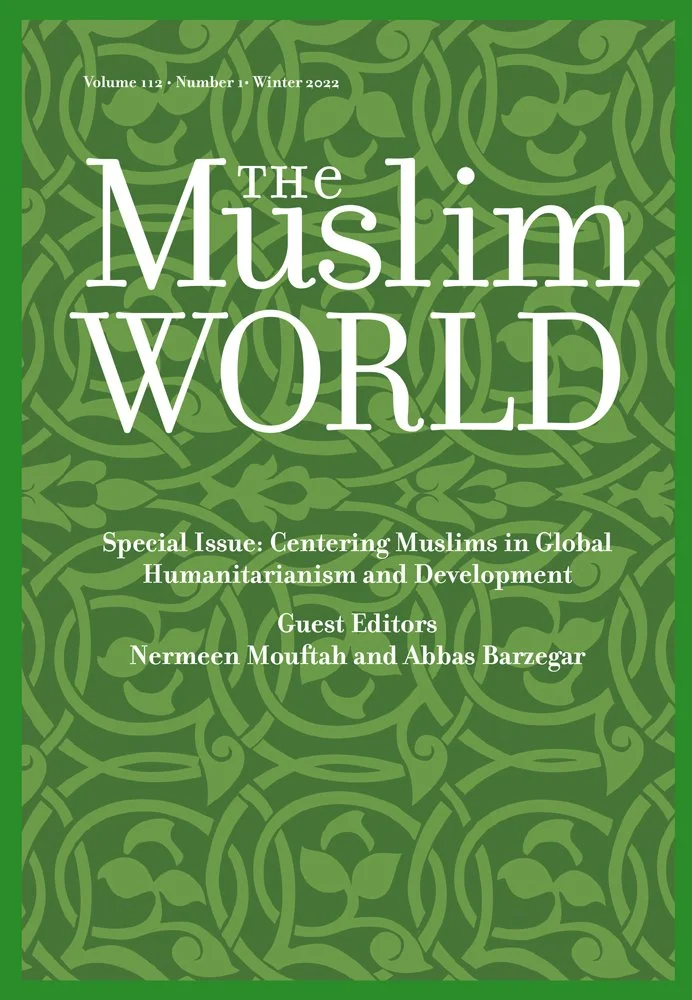
Economy of Tribulation: Translating Humanitarianism for an Islamic Counterpublic (2022)
This paper addresses the theoretical problem of how to approach Islamic charity in a humanitarian world, without simultaneously reproducing a secularization narrative in the terms of analysis. First, I outline the economic theology of an Islamic reformist organization serving Syrian refugees in Jordan. I argue that it should be disarticulated from the interpretative frame of “neoliberal piety” to which the academic literature often refers modern Islamic charity. Second, I outline how the organization’s director locates Islamic charity and international humanitarianism together within the same moral economy. I argue that his account, which relates but does not assimilate distinctive regimes of care, problematizes the acts of secular translation which generally mediate humanitarianism and religion. Taken together, these two arguments methodologically return us to the anthropological reclamation of historical difference.
-

Les croyants comme un corps souffrant: Remarques depuis la frontière jordano-syrienne (2021)
Les pratiques humanitaires musulmanes contemporaines sont imprégnées du langage de la solidarité religieuse. Pourtant, les historiens et les politologues ont montré que les déclarations d’unité islamique ne sont pas défendables et que le discours au sujet de la communauté religieuse (l’oumma) a une fonction idéologique. Plus largement, les tentatives des sciences sociales de comprendre l’oumma se fondent souvent sur sa répudiation théologique des catégories politiques modernes (nation-État-territoire). Au contraire, à partir d’un travail de terrain mené auprès d’organismes d’aide humanitaire en Jordanie et en tant que contribution à l’anthropologie politique de la religion, cet article plaide en faveur d’une autre façon de comprendre l’oumma : en n’exposant pas la différence entre l’idéal et la réalité, mais en envisageant plutôt la communauté religieuse sous la forme de sa perte.
-
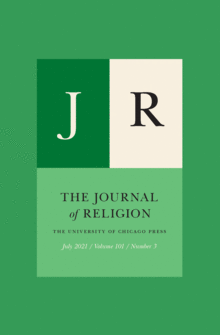
The Messiah and the Jurisconsult: Agamben on the Problem of Law in Sunni Islam (2021)
Although Giorgio Agamben engages Islam at various points in his work, it occupies an ambivalent role in his hypothesis that messianism constitutes the limit concept of the law. This article amplifies that ambivalence in order to explore how centering the shari‘a would confuse certain categorical divisions on which his messianism relies. I first read Islamic apocalyptic traditions with and against Agamben, and then explore messianic temporalities disclosed in the human articulation of divine law. While Agamben’s method organizes Islam alongside the other traditions he engages, the persistence of the Islamic theologico-juridical apparatus instead articulates his political theology as a Christian science.
-

Asad and Benjamin: Chronopolitics of Tragedy in the Anthropology of Secularism (2020)
Divergent theories of tragedy in the anthropology of secularism have been articulated with reference to the work of Talal Asad, yet he himself disavows a tragic sensibility. In seeking to understand this disjuncture, I sketch out political and analytical consequences of invoking tragedy when approaching Muslims in Europe and colonial-era shifts in Islamic law. I then align Asad’s demurral of tragedy with Walter Benjamin’s differentiation between classical tragedy and baroque drama. Benjamin demonstrates how anthropology could register (without affirming) secularism’s promise of disenchantment. Rather than tragedy, whose catharsis remains available for conscription by secular power, Asad’s critical project is animated by a methodological antihistoricism.
-
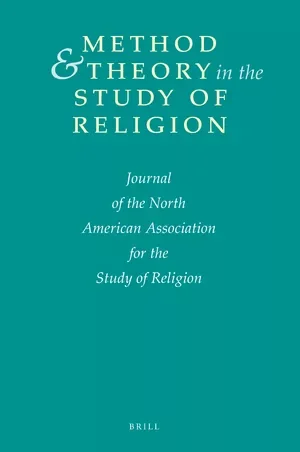
Disfiguring Christianity (2019)
This essay reads Anidjar’s “critique of Christianity” to confront the history of Western rhetoric, in its separation of figure from referent. He reads blood as catachrestic—catachresis not as abuse of language but its actualization. From the perspective of the tropological system, one might track the different meanings of blood (metaphorical, metonymic, symbolic) of historical Christianity. But from the asymmetrical perspective of catachresis, blood maps out the divisive activity of Christianity, even in its institution of the propriety of figure. Blood thus does not deliver a revolutionary program somehow “against” Christianity so much as demonstrate its impropriety. In so doing Blood partakes of the temporality of besiegement expressed in the Darwish poem with which the essay opens, where the possibility of escape is neither relinquished nor celebrated but endured. A postscript takes up Anidjar’s reading of Moses and Monotheism in order to raise the question of Islam.
Other Publications (selected)
Interviews
Reviews
Anniversary forum on Saba Mahmood’s Politics of Piety: The Islamic Revival and the Feminist Subject (2025)
Naveeda Khan’s River Life and the Upspring of Nature (2025)
Rajbir Singh Judge’s Prophetic Maharaja: Loss, Sovereignty, and the Sikh Tradition in Colonial South Asia (2025)
Anniversary forum on Talal Asad’s Formations of the Secular: Christianity, Islam, Modernity (2024)
Darryl Li’s The Universal Enemy: Jihad, Empire, and the Challenge of Solidarity (2024)
Carlos Alberto Sánchez’s A Sense of Brutality: Philosophy after Narco-Culture (2024)
David Henig’s Remaking Muslim Lives: Everyday Islam in Postwar Bosnia and Herzegovina (2022)
Book forum on Charles Hirschkind’s The Feeling of History: Islam, Romanticism, and Andalusia (2021)
Yassir Morsi’s Radical Skin, Moderate Masks: De-radicalising the Muslim and Racism in Post-Racial Societies (2019)
Book forum on Stefania Pandolfo’s Knot of the Soul: Madness, Psychoanalysis, Islam (2018)
Stefania Pandolfo’s Knot of the Soul: Madness, Psychoanalysis, Islam (2018)
Irfan Ahmad’s Religion as Critique: Islamic Critical Thinking from Mecca to the Marketplace (2018)
Cemil Aydın’s The Idea of the Muslim World (2017)
Salman Sayyid’s Recalling the Caliphate: Decolonisation and World Order (2015)
Gil Anidjar’s Blood: A Critique of Christianity (2014)
Anthony Paul Smith’s A Non-Philosophical Theory of Nature: Ecologies of Thought (2014)
Luca Mavelli’s Europe’s Encounter with Islam: The Secular and the Postsecular (2013)
Jamal J. Elias’s Aisha’s Cushion: Religious Art, Perception, and Practice in Islam (2013)
Anne Norton’s On the Muslim Question (2013)
Norman O. Brown’s The Challenge of Islam: The Prophetic Tradition (2012)
Martha C. Nussbaum’s The New Religious Intolerance: Overcoming the Politics of Fear in an Anxious Age (2012)
Michael Naas’s Miracle and Machine: Jacques Derrida and the Two Sources of Religion, Science, and the Media (2012)